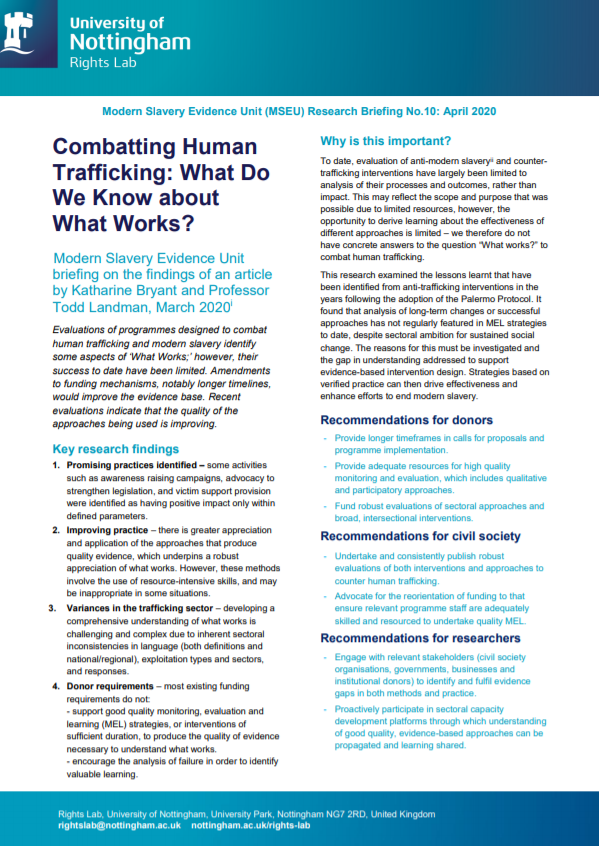11th General Report on GRETA’s Activities
GuidancePublicationsThis year’s General Report zooms in on the impact of information and communication technology (ICT) on trafficking in human beings. Countries monitored by GRETA have reported an increased use of ICT for recruiting and controlling victims of traffi...Read More

